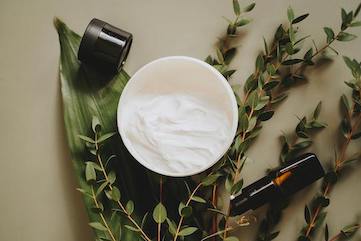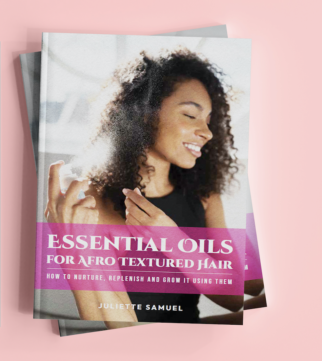Serums? Melanin-rich skin is naturally resilient, but it also has unique needs. Hyperpigmentation, dark spots, uneven tone, and dryness are common concerns, especially as your skin transitions from one season to another.
They are potent treatments designed to address specific skin concerns. This makes them an essential part of a skincare routine for women with deeper skin tones.
However, serums come in different forms—primarily oil-based and cream-based. Each type offers unique benefits. Understanding when and how to use them can significantly improve your skin’s health and appearance.
What Are Serums, and Why Do They Matter?
Serums are lightweight skin care products packed with high concentrations of active ingredients. They are designed to penetrate the deeper layers of your skin, addressing issues like fine lines, wrinkles, hyperpigmentation, and dehydration. The lightweight nature of them, allows for the delivery of targeted treatments without clogging pores or leaving a greasy residue.
For melanin-rich skin, which is more prone to issues like post-inflammatory hyperpigmentation (PIH), serums play an important role in brightening, evening out your complexion, and providing long-lasting hydration.
Oil-Based Serums: The Rich, Nourishing Choice
What Are Oil-Based Serums?
Oil-based serums are made using a combination of essential oils, carrier oils, and other lipophilic (oil-loving) ingredients. These oils are usually rich in antioxidants, fatty acids, and vitamins, which help nourish your skin deeply and lock in moisture.
Benefits of Oil-Based for Melanin-Rich Skin
– Moisture at a Deeper Level: Your skin tends to have a thicker dermal layer, meaning it can handle heavier products like oils. Oil-based serums provide deep moisturization, making them ideal for dry or combination skin types.
– Brightening Properties: Many oils used in serums, such as rosehip oil, argan oil, and jojoba oil, are rich in antioxidants like Vitamin E. They help to reduce the appearance of dark spots and hyperpigmentation. For those dealing with post-inflammatory hyperpigmentation, oil-based serums can be a gentle yet effective solution.
– Anti-Inflammatory: Melanin-rich skin is more prone to inflammation and irritation, especially when exposed to harsh ingredients. Oils like chamomile, marula, and calendula are known for their soothing and anti-inflammatory properties, making oil-based serums a good choice for calming irritation.
– Enhanced Absorption: Oil-based serums contain lipophilic ingredients, which means they can penetrate your skin’s natural oils more easily. This results in better absorption of nutrients, leaving your skin glowing, soft, and supple.
When to Use Oil-Based?
– Nighttime: Oil-based serums are best used at night. Your skin undergoes a repair process during sleep. This is the perfect time to nourish it with a rich oil-based serum.
– After Cleansing: For maximum absorption, apply an oil-based serum on damp skin after cleansing and toning.
– During Colder Seasons: Oil-based serums are great for fall and winter when your skin tends to become drier and needs extra hydration.
Cream-Based Serums: The Lightweight Hydrators
What Are Cream-Based Serums?
Cream-based serums are typically water-based or contain a mixture of water and oils to create a creamy, hydrating formula. They are designed to offer the benefits of added hydration and are often more lightweight than oil-based serums.
Benefits of Cream-Based Serums for Melanin-Rich Skin
– Hydration Without Clogging Pores: One of the standout features of cream-based serums is that they offer hydration without the heaviness of oils. This makes them ideal for individuals with oily or combination skin. Cream-based serums can provide hydration without clogging pores or leaving a greasy residue. This is important for melanin-rich skin that can often be prone to acne.
– Instant Absorption: Cream-based are absorb quickly into your skin, making them ideal for daytime use. They deliver hydration to the deeper layers of your skin and provide a plumping effect that can help reduce the appearance of fine lines and wrinkles.
– Lightweight but Effective: Cream-based serums are lighter than oil-based options but still pack a punch in terms of delivering active ingredients. They often include hydrating agents like hyaluronic acid, glycerin, or ceramides, which are perfect for providing long-lasting hydration without the heavy feel of oil-based products.
– Ideal for Layering: Since cream-based serums are lightweight, they work well as part of a layered skin care routine. For example, after using a toner or essence, you can follow up with a cream-based serum and then finish with a moisturizer. This layering technique ensures that your skin receives hydration without feeling weighed down.
When to Use Cream-Based?
– Morning Routine: Cream-based serums are best used in the morning, especially under makeup. They absorb quickly and won’t leave a shiny residue, making them perfect for those who want a smooth base for their foundation.
– Humid Weather: In hot and humid climates, cream-based serums can provide sufficient hydration without overwhelming the skin.
– Oily Skin Types: If you have oily or combination skin, a cream-based serum is a great option for delivering hydration while keeping excess oil production in check.
Choosing Between Oil and Cream-Based
Choosing the right serum for melanin-rich skin ultimately depends on your skin type, concerns, and lifestyle. Here’s a quick breakdown to help you decide:
– For Dry or Mature Skin: Oil-based serums are perfect for providing long-lasting hydration and repairing the skin’s barrier. They work well for those dealing with dry patches or mature skin that needs an extra boost of moisture and nourishment.
– For Oily or Acne-Prone Skin: Cream-based serums are lightweight, hydrating, and non-comedogenic, making them ideal for oily or acne-prone skin. These serums can deliver hydration without adding to the skin’s natural oil production.
– For Hyperpigmentation or Dark Spots: Both oil-based and cream-based serums can address hyperpigmentation, but oil-based serums containing ingredients like rosehip oil, Vitamin C, and antioxidants might offer more intensive treatment for dark spots and uneven skin tone.
– For Seasonal Changes: As the seasons change, so should your skincare routine. In colder months, opt for a rich, oil-based serum to protect your skin from dryness. During warmer months, switch to a lightweight, cream-based serum to keep your skin hydrated without clogging pores.
Summing Things Up …
Serums are a powerful tool in any skincare routine, especially for melanin-rich skin that requires targeted care. Whether you opt for an oil-based or a cream-based depends on your skin type, specific concerns, and the season.
Oil-based products offer deep moisturization and nourishment, making them ideal for nighttime use or during the colder months.
On the other hand, cream-based serums are perfect for daily use, providing lightweight hydration and quick absorption, especially in warmer climates or for those with oily skin.
By understanding the benefits of each type of serum, you can tailor your skincare routine to ensure your melanin-rich skin stays healthy, glowing, and even-toned year-round.
That’s it for this week. As always …
Dedicated To Your Beauty,
Juliette Samuel,
Esthetician/Author/Publisher,





 Facebook
Facebook Twitter
Twitter Delicious
Delicious Digg
Digg Myspace
Myspace StumbleUpon
StumbleUpon Youtube
Youtube